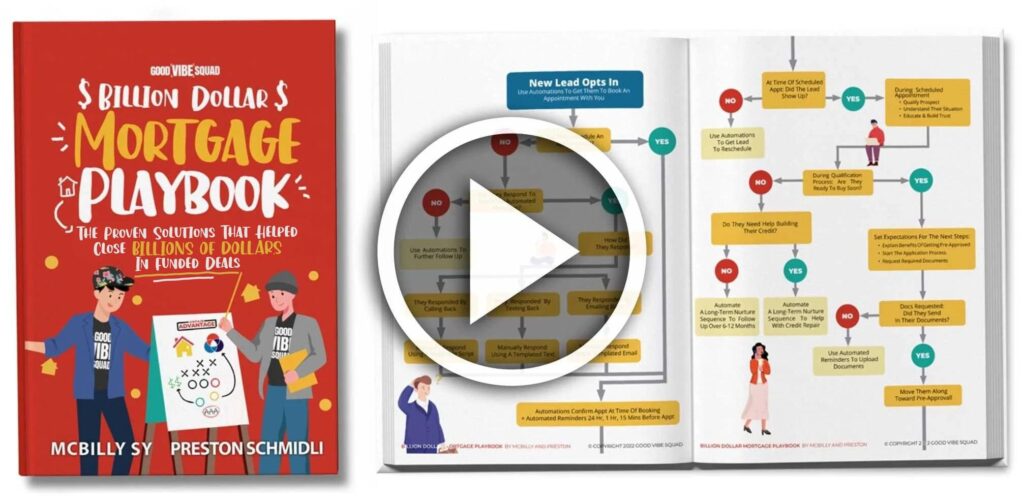As a mortgage professional, you know that your industry must comply with a long list of state and federal regulations. This is especially true when it comes to both traditional forms of advertising, as well as advertising on social media. Mortgage loan ads must follow specific guidelines and any form of mortgage loan advertising is subject to lender audits to ensure compliance. These mortgage advertising tips for social media can help ensure you remain compliant while reaching your target audience.
Key Takeaways
- Mortgage advertising on social media must comply with state and federal regulations, including providing accurate information and avoiding misleading terms.
- Mortgage professionals should be aware of “triggering terms” in their ads, which require disclosures when used, and ensure that advertised interest rates are accurate and up-to-date.
- Regulations B, N, and Z are important for mortgage lenders to follow in order to avoid fines or penalties, and platforms like Facebook offer tools to help advertisers remain compliant.
Get Our Billion Dollar Mortgage Playbook
Get the proven strategies that helped close Billions of dollars in funded deals!
State and federal guidelines
When it comes to mortgage advertising, federal advertising rules apply to consumer mortgages while state regulations apply to both consumer and business mortgages. While federal regulations apply to all mortgage lenders, you will need to consult with the regulations of your state in order to ensure compliance. Here we look at some of the federal rules governed by the Federal Trade Commission (FTC) and the Consumer Financial Protection Bureau (CFPB).
First-point-of-contact information rules
First-point-of-contact refers to marketing materials designed to make initial contact with a prospective client in order to establish a relationship. This type of marketing can include everything from business cards and stationery to emails, websites, and social media profiles. Any first-point-of-contact material you create must include the broker’s name and the licensing number of each broker.
Availability of advertised mortgages
If you advertise specific mortgage terms, these terms must actually be available to a borrower. The misrepresentation of a consumer’s likelihood of mortgage approval violates Regulation N, which we will explain in-depth below.
Misleading terms
Any form of advertising, including social media, must not include any false or misleading terms that can mislead the borrower. This includes interest rates, fees, costs, taxes, insurance, and any potential aspects of an advertised mortgage.
Triggering terms
The FTC defines any words or phrases that advertise specific terms of a credit agreement as triggering terms. When these terms are used in social media marketing, disclosures are required. Triggering terms can include the amount of a finance charge, the number of payments, and a down payment amount expressed as a percentage or a whole dollar amount. Examples would be “For as little as 3.5% down” or “30-year mortgage.”
Other prohibitions
In addition to previously mentioned guidelines, mortgage advertising is also prohibited from advertising that includes the simulation of a check, as they can mislead borrowers into thinking they are guaranteed money that is not actually available to them. In addition, no form of mortgage marketing can discriminate based on ancestry, color, disability, marital status, natural origin, race, religion, or sex.
Mortgage advertising on Facebook
Many social media platforms, such as Facebook, are designed to help advertisers remain compliant with their governing bodies when it comes to selecting target audiences. For example, when creating Facebook marketing campaigns, Facebook requires the use of Special Ad Audiences for certain advertisers to choose a broad target audience that is seen as more inclusive and non-discriminatory.
Rules about interest rates
Current interest rates can be used in mortgage advertising with conditions. To start, any interest rate you advertise must be the actual rate that your company is currently offering. This means that should your offering rate change, you need to immediately change your ad to reflect the new rate or pull the ad completely. In addition, you must display the annual percentage rate, or APR, conspicuously.
Addressing mortgage compliance
When it comes to mortgage advertising, there are several specific regulations that mortgage lenders must follow in order to remain compliant. The three main regulations when it comes to advertising include regulations B, N, and Z.
1. Regulation B
Regulation B is the Equal Credit Opportunity Act (ECOA) and is designed to ensure that all creditworthy consumers have access to mortgage loans. While this regulation does not provide specific advertising requirements, it does prohibit lenders from practices, including advertising, that discriminate against consumers based on age, ethnicity, gender, marital status, and nationality.
2. Regulation N
Regulation N was established by the Consumer Financial Protection Bureau (CFPB) and the FTC in the Mortgage Acts and Practices in Advertising law. This regulation includes all the basic advertising rules for commercial marketing materials. The goal of this regulation is to prohibit deceptive mortgage advertising, including things such as mortgage type misrepresentation, not providing the variability of interest rates, not indicating potential consumer fees, and not explaining how a fixed-rate mortgage can change over the long term.
3. Regulation Z
Regulation Z is the Truth in Lending Law. The goal of this regulation is to provide consumers with the actual cost of the loan and allows for better credit term and rate comparisons between lenders. This regulation requires that all mortgage loan advertising provides the truth to consumers and does not include anything misleading. It requires the disclosure of interest rates, both nominal and APR.
Ensuring Facebook marketing is compliant
With the popularity of social media, social media marketing is essential for business success and the generation of new leads. However, because every mortgage lender is subject to audits, it is essential to make sure all of your marketing efforts, including social media marketing, follow the regulations and remain compliant in order to avoid fines or, in a worst-case scenario, a lockdown.
At Good Vibe Squad, we understand how important lead generation is to a successful business. Our Unfair Advantage™ program can help you boost your lead generation and bottom line. Schedule a strategy call with us today to learn more about how our team can give your business the boost it needs.







